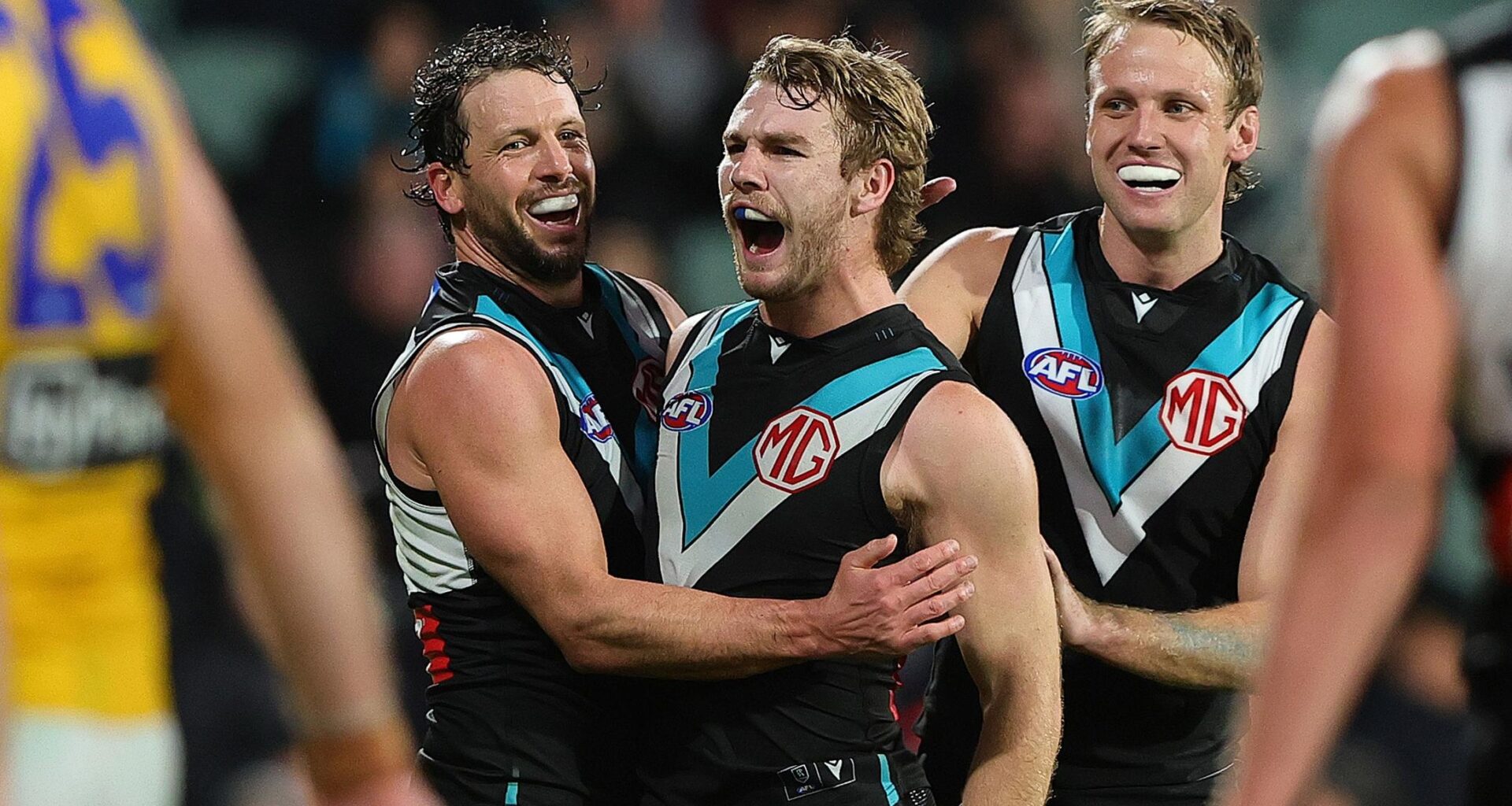The Port Adelaide star tells new documentary ‘Yarnin’ With Joey’ how being among his family and steering clear of social media helped after a tumultuous start to his AFL career
Jason Horne-Francis (centre) celebrates a goal with Travis Boak (left) and Jack Lukosius in Port Adelaide’s clash with West Coast in round 18, 2025. Picture: AFL Photos
PORT Adelaide star Jason Horne-Francis has explained how he got away from the “toxic scrutiny” of social media that weighed him down early in his career.
Speaking on the Yarnin’ with Joey short film released on AFL.com.au and the AFL Live App, Horne-Francis said the main reason he left North Melbourne to return to South Australia at the end of 2022 was to be closer to his support network.
>> WATCH YARNIN’ WITH JOEY IN THE PLAYER BELOW
“A couple of years ago it (social media) was very raw and fed into that toxic scrutiny that you’d get,” he said.
“I think I’ve learnt now that a lot of it is just opinions. Everyone has their own opinions, and whether they’re right or wrong, everyone’s going to have them.
“You’ve just got to think internally and stay within the four walls of the club and yourself and the best way I’ve found is just to try and leave the social media footy posts (behind).
“You don’t want to see it all the time.”
The short documentary, hosted by 16-year-old Joey, discusses the intersection of football, social media and mental health for First Nations people.
It includes discussions with not only Horne-Francis, but new Port Adelaide coach Josh Carr, chairman David Koch and rugged defender Lachie Jones.
“A lot of young kids are getting caught up with social media and sometimes it can be not so positive,” Horne-Francis said.
“When I was younger, I had footy to just get out and that was my little safe place, my happy place. I didn’t have social media, which was good for me.
“The main reason I wanted to come back home to Port Adelaide was to have my support network around me; my family, my friends, my partner.”
The documentary was centred around the Power Cup, which saw 800 First Nations participants from around the country descend on Adelaide to compete.

